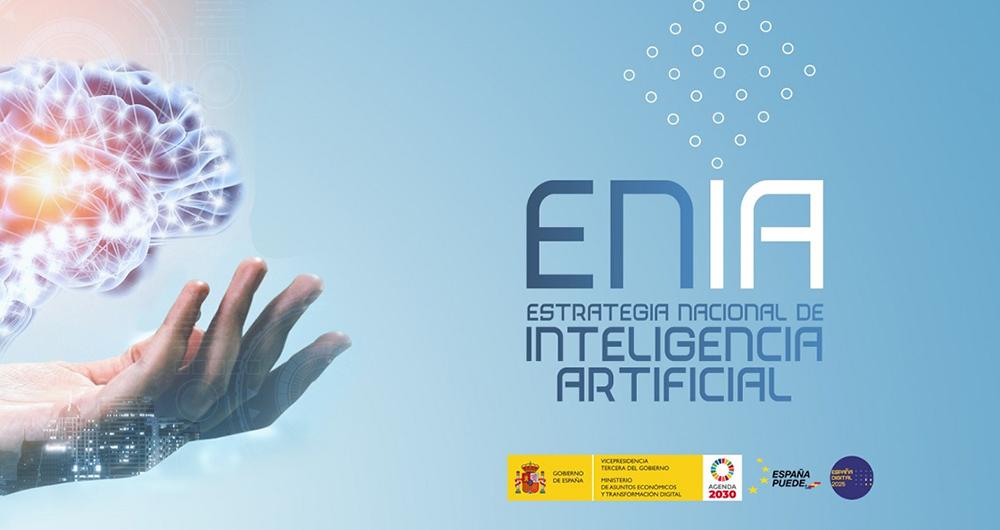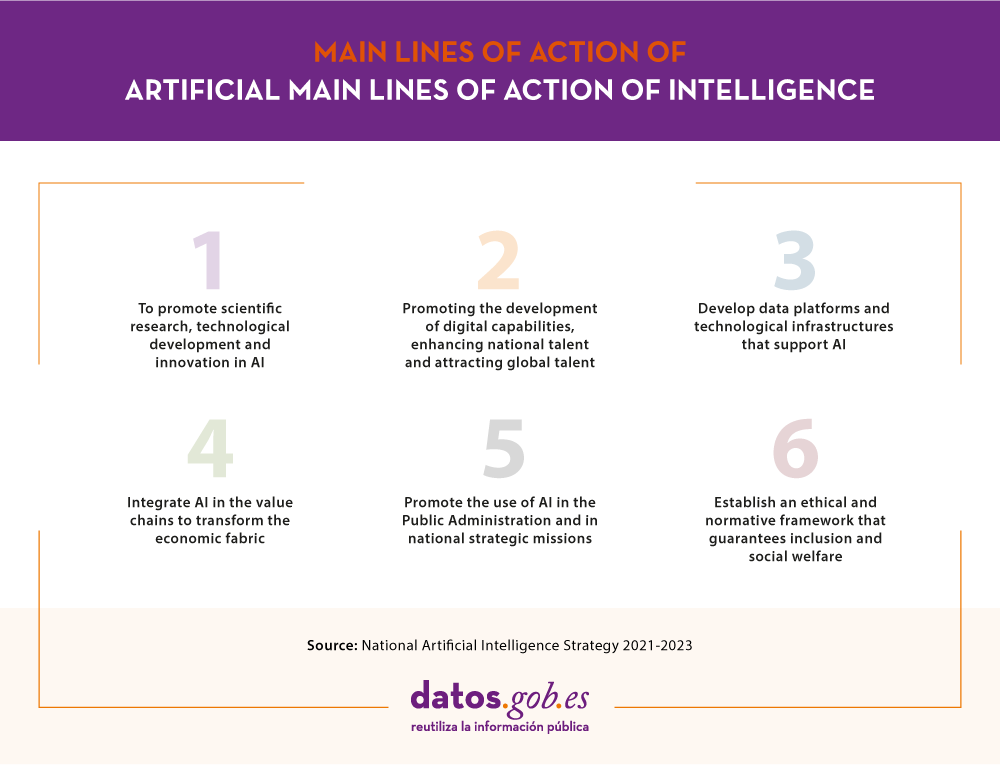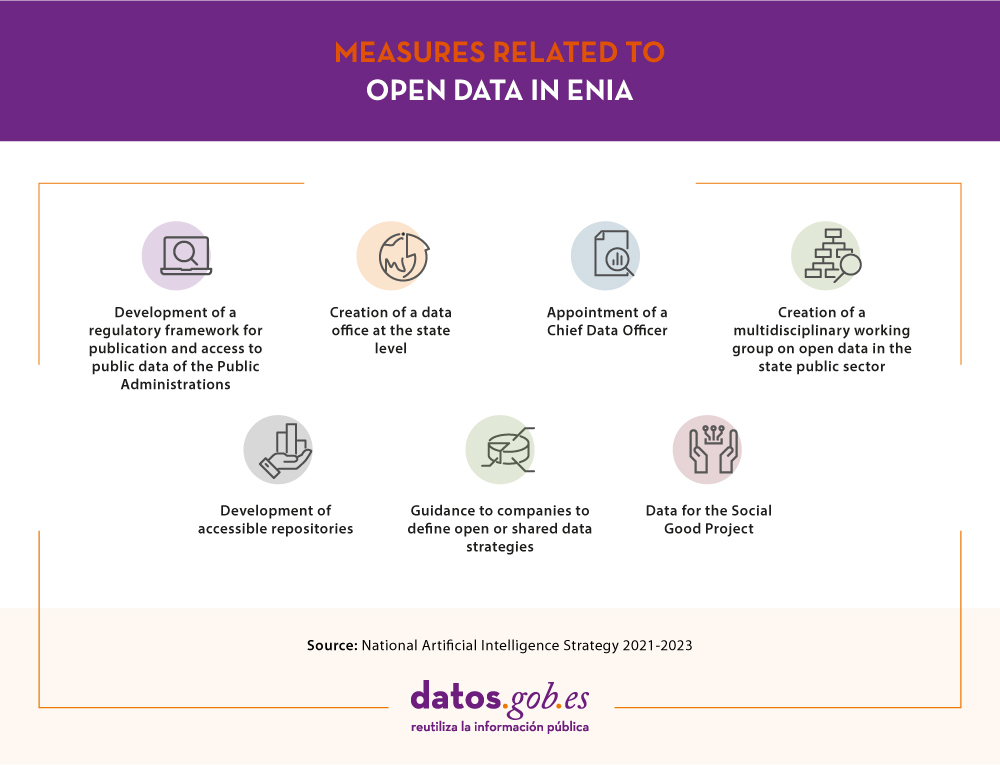
Spain already has a new National Artificial Intelligence Strategy. The document, which includes 600 million euros for measures related to artificial intelligence (AI), was presented on December 2 at the Palacio de la Moncloa.
The National Strategy for Artificial Intelligence (known as ENIA) is component 16 of the Plan for the Recovery, Transformation and Resilience of the Spanish economy, and one of the fundamental proposals of the Digital Spain Agenda 2025 in its line 9 of action, which highlights AI as a key element for boosting the growth of our economy in the coming years. In addition, the new strategy is aligned with the European action plans developed in this area, and especially with the White Paper on Artificial Intelligence.
Objectives and lines of action
The ENIA is a dynamic and flexible framework, open to the contribution of companies, citizens, social agents and the rest of the administrations, which was created with 7 objectives: scientific excellence and innovation, the projection of the Spanish language, the creation of qualified employment, the transformation of the Spanish productive fabric, the creation of an environment of trust in relation to AI and the promotion of an inclusive and sustainable AI that takes into account humanist values.
To achieve these objectives, 6 lines of action have been created, which bring together a total of 30 measures to be developed in the period 2020-2025:

In short, the aim is to create a national ecosystem of innovative, competitive and ethical artificial intelligence. And to do this, it is essential to have large volumes of quality and interoperable data and metadata, which are accessible, complete, secure and respectful of privacy.
Open data in the National Strategy of Artificial Intelligence
The availability of open data is essential for the proper functioning of artificial intelligence, since the algorithms must be fed and trained by data whose quality and availability allows continuous improvement. In this way we can create value services that impact on the improvement of society and the economy.
The National Strategy for Artificial Intelligence highlights how, thanks to the various initiatives undertaken in recent years, Spain has become a European benchmark for open data, highlighting the role of the Aporta Initiative in promoting the openness and reuse of public information.
In strategic axis 3 of the document, several key areas are highlighted where to act linked to AI data platforms and technological infrastructures:
- Developing the regulatory framework for open data, to define a strategy for publication and access to public data from administrations in multilingual formats, and to ensure the correct and safe use of the data.
- Promote actions in the field of data platforms, models, algorithms, inference engines and cyber security, with the focus on boosting research and innovation. Reference is made to the need to promote Digital Enabling Technologies such as connectivity infrastructures, massive data environments (cloud) or process automation and control, paying special attention to Strategic Supercomputing Capabilities (HPC).
- Promote the specific development of AI technologies in the field of natural language processing, promoting the use of Spanish in the world. In this sense, the National Plan of Language Technologies will be promoted and the LEIA project, developed by the Royal Spanish Academy for the defense, projection and good use of the Spanish language in the digital universe, will be supported.
In the specific case of open data, one of the first measures highlighted is the creation of the Data Office at the state level that will coordinate all public administrations in order to homogenize the storage, access and processing of data. To strengthen this action, a Chief Data Officer will be appointed. In addition, a multidisciplinary working group on open data in the state public sector will be set up to highlight the efforts that have been made in the field of data in Spain and to continue promoting the openness and reuse of public sector information.
The strategy also considers the private sector, and highlights the need to promote the development of accessible repositories and to guide companies in the definition of open or shared data strategies. In this sense, shared spaces of sectorial and industrial data will be created, which will facilitate the creation of AI applications. Furthermore, mention is made of the need to offer data disaggregated by sex, age, nationality and territory, in such a way as to eliminate biases linked to these aspects.
In order to stimulate the use and governance of public and citizen data, the creation of the Data for Social Welfare Project is established as an objective, where open and citizen-generated data will play a key role in promoting accountability and public participation in government.

Other highlights of the ENIA
In addition to actions related to open data, the National Strategy of Artificial Intelligence includes more transversal actions, for example:
- The incorporation of AI in the public administration will be promoted, improving from transparency and effective decision-making to productivity and quality of service (making management and the relationship with citizens more efficient). Here the Aporta Initiative has been playing a key role with its support to public sector bodies in the publication of quality data and the promotion of its reuse. Open data repositories will be created to allow optimal access to the information needed to develop new services and applications for the public and private sectors. In this sense, an innovation laboratory (GobTechLab) will be created and training programs will be carried out.
- The aim is to promote scientific research through the creation of a Spanish Network of Excellence in AI with research and training programs and the setting up of new technological development centers. Special attention will be given to closing the gender gap.
- A program of aid to companies for the development of AI and data solutions will be launched, and the network of Digital innovation Hubs will be reinforced. A NextTech Fund for public-private venture capital will be created.
- Talent will be promoted through the National Digital Skills Plan. AI-related elements will be introduced in schools and the university and professional AI training offer will be boosted. The SpAIn Talent Hub program will be developed in coordination with ICEX Invest to attract foreign investment and talent.
- A novelty of the strategy is that it takes into account ethical and social regulation to fight discrimination. Observatories for ethical and legal evaluation of algorithmic systems will be created and the Digital Rights Charter, currently under revision, will be developed.
In short, we are facing a necessary strategy to boost the growth of AI in Spain, promoting our society and economy, and improving our international competitiveness.